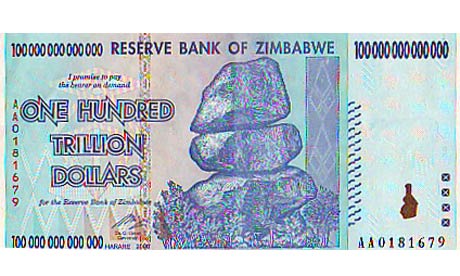@)
...........................................
Why QE2 Isn't the Answer
What's that great ship coming over the horizon to rescue us? Is that the QE2? Or is it the Titanic?
That's what the markets want to know now, as they eagerly await word from the Federal Reserve on whether it will launch an additional round of quantitative easing, nicknamed QE2. If the Fed announces that it will indeed buy hundreds of billions of dollars’ worth of Treasurys or some other security, it could make a real difference to the markets. At this point, with QE2 pretty widely expected to arrive—at least in some form and quantity—my sense is that the biggest impact could come if the Fed fails to act. The markets could be very, very disappointed.
What will QE2 accomplish for the economy? Maybe nothing at all, which makes the whole thing rather silly.
It's called QE2, but it should really be called QE4. The first QE was in November 2008, back when the banking crisis was still in full swing and the Fed and the Treasury were actively engaged in bailing out Citigroup in various ways. The Fed committed to buying $500 billion worth of mortgage-backed securities and $100 billion in the direct debt obligations of Fannie Mae and Freddie Mac.
The next step—and this is the one that should be called QE2—was in March 2009, about a week after stocks hit their final bear market bottom. The Fed announced that it would add $750 billion to its MBS buy and $100 billion to its Fannie and Freddie debt buy, and that it would start an entirely new program of buying $300 billion in long-term Treasury notes and bonds.
The most recent step, which should be called QE3, was this August, when the Fed announced it would buy long-term Treasury notes and bonds with the income thrown off from its MBS portfolio.
So what would QE4 look like? Some highly pedigreed economists think it could be as much as a trillion dollars in Treasury bond purchases. Others—the majority, I'd say—expect it to be a more modest amount, perhaps $100 billion, with the assurance that more will come if necessary.
I doubt the Fed will buy more mortgage-backed securities. It already owns about 20 percent of that market. I doubt it will buy corporate securities—that would be pretty controversial, because the Fed would have to get into the business of picking which companies to support and which not to. And I doubt it would buy municipal securities, even though it might be a good idea to give a little support to the states that are having such terrible budget problems, including New Jersey, Illinois and my own state of California.
So let's say it's Treasuries. What would the effect of that be?
Obviously, it would make Treasury yields lower than they would be otherwise. Or would it? Shortly after the Fed announced its Treasury purchases in March 2009, yields actually went up.
Published October 5, 2010







